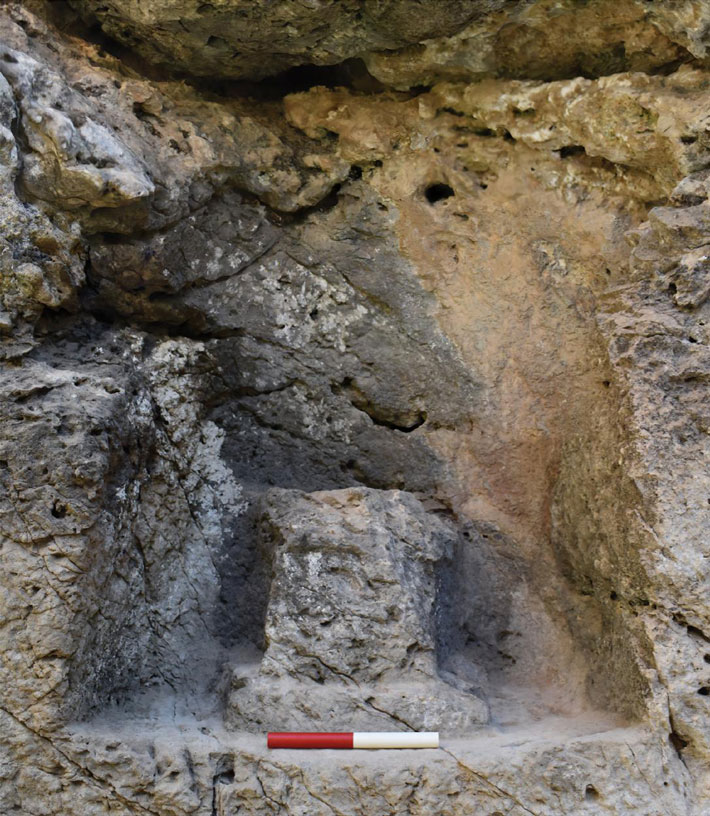 HEIDELBERG, GERMANY—According to a statement released by Heidelberg University, a possible sanctuary dedicated to the ancient Persian water goddess Anahita has been found at Rabana-Merquly, the site of a Parthian Empire military fortress in the mountains of Iraqi Kurdistan. Michael Brown of Heidelberg University and his colleagues uncovered traces of the possible temple, including a fire altar, near a seasonal waterfall. Brown explained that Anahita was described in the Avesta, a Zoroastrian manuscript, as a beautiful woman who can assume the form of a flowing stream or waterfall. “The proximity to the waterfall is significant because the association of fire and water elements played an important role in pre-Islamic Persian religion,” Brown added. The researchers also uncovered two burial vessels radiocarbon dated to the first century B.C. at the site. Brown noted that visitors entering the sanctuary would have passed under a relief depicting a man who may have been the local Parthian vassal king. “Even if the cult site cannot be definitively attributed to the water goddess Anahita due to the lack of similar archaeological finds for direct comparison, the Rabana sanctuary still provides us with a fascinating glimpse into the regional sacral and geopolitical interconnections during the Parthian era,” he concluded. For more on Rabana-Merquly, go to "Royal Mountain Fortress."
HEIDELBERG, GERMANY—According to a statement released by Heidelberg University, a possible sanctuary dedicated to the ancient Persian water goddess Anahita has been found at Rabana-Merquly, the site of a Parthian Empire military fortress in the mountains of Iraqi Kurdistan. Michael Brown of Heidelberg University and his colleagues uncovered traces of the possible temple, including a fire altar, near a seasonal waterfall. Brown explained that Anahita was described in the Avesta, a Zoroastrian manuscript, as a beautiful woman who can assume the form of a flowing stream or waterfall. “The proximity to the waterfall is significant because the association of fire and water elements played an important role in pre-Islamic Persian religion,” Brown added. The researchers also uncovered two burial vessels radiocarbon dated to the first century B.C. at the site. Brown noted that visitors entering the sanctuary would have passed under a relief depicting a man who may have been the local Parthian vassal king. “Even if the cult site cannot be definitively attributed to the water goddess Anahita due to the lack of similar archaeological finds for direct comparison, the Rabana sanctuary still provides us with a fascinating glimpse into the regional sacral and geopolitical interconnections during the Parthian era,” he concluded. For more on Rabana-Merquly, go to "Royal Mountain Fortress."
Possible Parthian Religious Site Found in Iraqi Kurdistan
